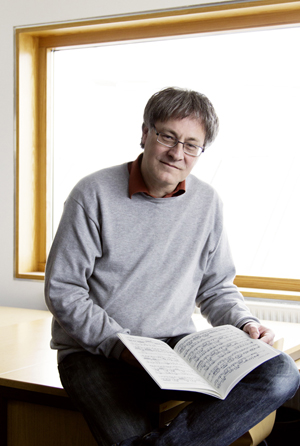Favorite Work of December 2015
 Every month one member of the Carus team introduces his/her favorite work, whether it be a choral piece, a CD, a songbook or an organ edition. The recommendation in December 2015 was contributed by Dr. Uwe Wolf.
Every month one member of the Carus team introduces his/her favorite work, whether it be a choral piece, a CD, a songbook or an organ edition. The recommendation in December 2015 was contributed by Dr. Uwe Wolf.
Heinrich Schütz: "Saul, wilt thou injure me?" SWV 145
Hardly any other work made such a deep impression on me in my youth as “Saul” by Heinrich Schütz, which I sang for the first time as a young bass aged perhaps 14 or 15. And it continues to exert its fascination today: when, towards the end, the tenor emerges from the tutti with his step-wise ascending calls of “Saul”, you simply cannot avoid getting goose-bumps (and I think of Handel!). It is no coincidence that “Saul” played a prominent role in the reception of Schütz's works: Carl von Winterfeld published the work in 1834 in the music section of his book on Gabrieli, which led to numerous performances in the 19th century, including one in 1864 by Johannes Brahms. Schütz's “Saul” thus became the starting point for the rediscovery of the composer and remains to this day – and rightly so – one of his best-known compositions.
But “Saul” is not an independent work, it comes from Part 3 of the "Symphoniae Sacrae", a true treasure trove of magnificent sacred concertos, often with a high “choral factor” and always music “which gets under the skin”. The Symphoniae Sacrae III have just been released as part of the complete recording by the Dresdner Kammerchor under Hans-Christoph Rademann. This once again demonstrates what a treasure Schütz created here. Listening to “Saul” (and other works) in this splendid recording spurred me on to write this short piece: if I had a choir, instead of listening to the work I would be much more inclined to give out the music straight away ...
Dr. Uwe Wolf has been the Director of the Carus Editorial Office since October 2011. Prior to this he devoted himself to Bach research for over 20 years. In addition, in his role as the general editor of the Selected Works of Gottfried August Homilius he is largely responsible for the fact that this composer is no longer an unknown in the music world.

